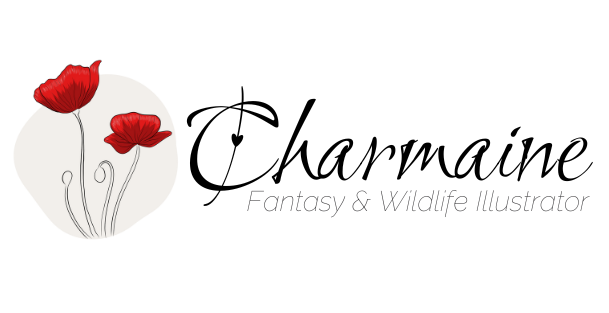How to Draw a Grey Wolf Head
In this tutorial, I'm going to go through the process of how I drew a wolf head.
For my illustration, I will be using Procreate but the process for drawing digitally is pretty similar to traditional illustrations.
Using References
Always use references when you can. They are an illustrator's best friend when it comes to creating new art or drawing a subject you are not familiar with.
Keep in mind though that not all photos on the internet can freely be used for your art, especially if you plan on selling that art.
You cannot outright copy someone's work and this includes photography but, you can use multiple references to create something new.
You cannot outright copy someone's work and this includes photography
As a general rule of thumb, use multiple references. If you do this, you will be making something that is truly unique.
Image sourced from Pixabay.
But of course, you can just use a single image from the various free image sites such as Pixabay - this is where my reference photo came from. This is especially useful for those who are still practising a new subject or jumping back into art after a long time.
With that out of the way, let’s move on to the actual drawing.
Step 1 ~ Finding the shapes
For my illustration, I will be focusing on just the head of the wolf but, feel free to do the whole wolf if you feel inspired to.
Anything can be drawn from shapes found in the subject. Start by loosely drawing in the shapes you can see.
Shapes I found in the wolf's head.
Some illustrators like to use squares and straight lines while others may feel more comfortable using circles and ovals. Personally, I switch between both depending on the art.
If you are drawing on paper, make sure you don’t press too hard so you can sketch over it later.
Step 2 ~ The Sketch
Lower the opacity of the shapes layer and using a 6B pencil brush begin your sketch layer. This doesn't have to be perfect even if you are drawing on a real piece of paper.
Remember though, if you are working traditionally, sketch lightly so you can further refine it before it is made permanent in the inking stage.
The sketch I drew over my initial shapes.
Step 3 ~ Inking
On a new layer, we will begin our inking! For traditional creatives, you can either use a lightbox/light pad similar to this one and ink on a new sheet of paper or, use a putty rubber like this one to gently fade the sketched lines to ink over the top.
Note: I am not affiliated with the above links and do not earn a commission from them. These are just for your reference and I recommend you look around to find the best options for you.
For digital, you don't have to be too careful since you have an undo and erase option but don’t get stuck in the perfectionist mentality. It doesn’t feed your creative brain.
Lower the opacity of your sketch layer to see your inked lines better.
The inked layer over my initial sketch of my grey wolf head.
Whether you are using a tablet or a piece of paper, use varying line thicknesses to create more interest and variation in your illustration.
If you make a mistake, just go with it. This will help you to be able to think on your feet more easily and can sometimes give us some surprising results.
For those mistakes you really aren’t happy with, there is always the undo or erase tool. This would be white paint for traditional art - provided you’re using white paper.
The Final Wolf Head Illustration
Congratulations! You have created your grey wolf illustration.
Final grey wolf head digitally inked illustration.
You can print your illustration and display it on your wall, turn it into a printable colouring page or, maybe you want to add it to other items such as mugs and t-shirts - like I did! (Shameless plug)
Final Thoughts
In this tutorial, we went through the process of drawing a wolf head. We started by finding the shapes in the reference photo to then draw our sketch.
Once the sketch was complete we added a new layer(digital method)/faded the lines(traditional method), to create the final inked illustration using varying line thicknesses.
Pretty simple, huh? Maybe not for new artists but trust the process of learning and it’ll become easier to create new illustrations.
Have a lovely day,
Charmaine x
Want More?
Join my Patreon to see the full video processes of my work and the full steps from sketching to fully painted illustrations.
You will also get first access to new YouTube content and products before they are made available to the public along with discount codes that are exclusive to members.
Patreon is also a place where you can get digital prints of my art that you can print from home.
Plus you will be able to steer the artwork and designs that I work on next. And the best part is, all this is under one single tier on Patreon.
See you there!







